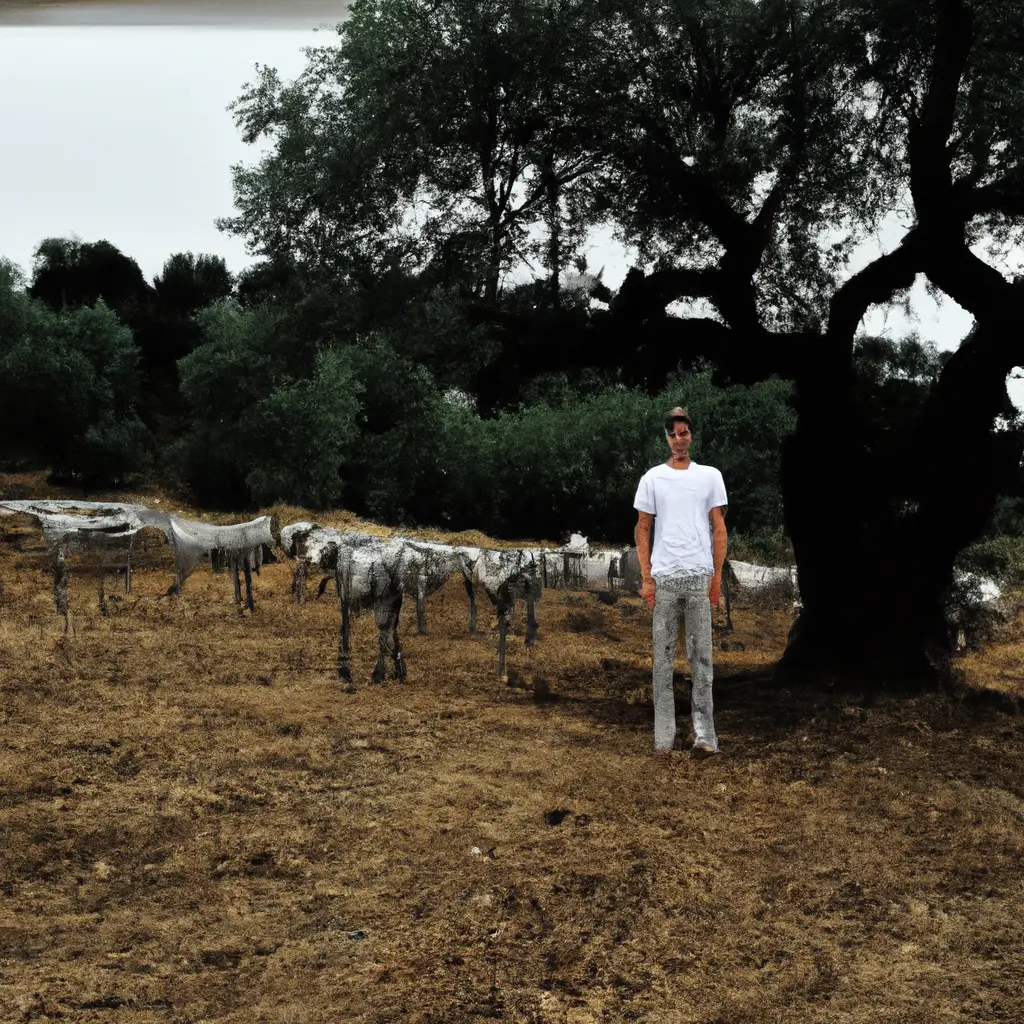Trees going into retirement, pigs on maternity leave on a farm in Portugal

In the rolling hills of Alentejo in Portugal's Herdade São Luís pastoral county, Herdade is adapting an ancient Montado agro-agricultural system to improve soil fertility and support biodiversity.
Here, black Iberian pigs and merino sheep graze under old oaks, while nearby Serpentina goats graze on blackberries and remove combustible grass. As jays and woodpeckers fly over the estate, José Méndez stacks slats of cork recently removed from the 700-hectare oak forest.
Every summer he skillfully cuts away the bark of the cork oaks without damaging the trees, an art he has mastered in over four decades as a cork carver. "I love seeing these beautiful old trees the most," Mendes says, standing under the tree's branches. He is hired from May through August each year to extract bark when the trees are in the active growth phase. Once the bark is removed, the plug will slowly regrow. It can be harvested every nine years, averaging about 15 times over the tree's two hundred year life. When old or brittle, they "retire" from plug removal, but continue to produce acorns and provide shade for animals on the farm. "Many of the cork and oak trees here are two centuries old and have been managed by my ancestors for many generations," says Francisco Alves, who owns the property.
Montado is ideal because it allows for the integration of different land uses, says Alves. "Animals help prevent fires and fertilize the soil. They feed on acorns and also benefit from the shade of oak trees. "
Like much of the Mediterranean region, southern Portugal is experiencing worsening drought and desertification.
Fostering dryland-adapted pastures, animals and cultivated plants can help increase food productivity, as well as improve soil quality, regulate water cycles, protect against erosion, increase biodiversity and capture carbon.
In addition to continuing Montado's century-old tradition, Alves combines it with more modern restoration techniques to improve soil fertility in his fields and produce better quality products. No chemicals are used on Herdada San Luis, and no plowing is done so as not to disturb the soil. Alves carefully controls where and how long the animals graze, as well as its impact on the land. He uses electric fencing to limit their access to only one section of the field. Here they graze for a few days, leave manure and then move to a new area. Moving pasture to new areas allows the land to rest, to grow.
Comment
Popular Posts
Popular Offers

Subscribe to the newsletter from Hatamatata.com!
Subscribe to the newsletter from Hatamatata.com!
I agree to the processing of personal data and confidentiality rules of Hatamatata














